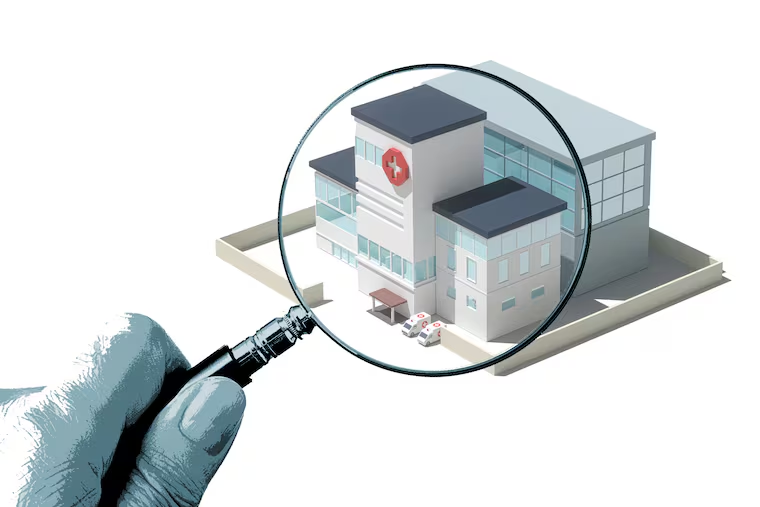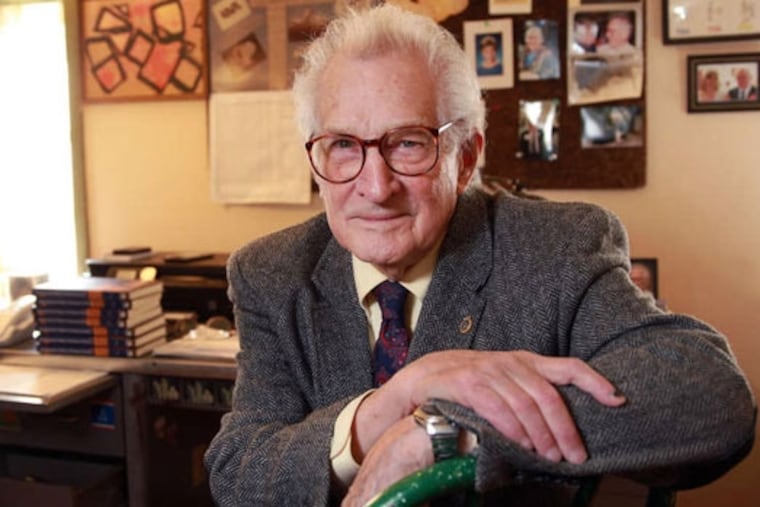Skip to contentPaula Span, KFF Health News
Joanna Fong-Isariyawongse, The Conversation
Barry J. Jacobs and Julia L. Mayer, For The Inquirer
Joanna Fong-Isariyawongse, The Conversation
Joanna Fong-Isariyawongse, The Conversation
Barry J. Jacobs and Julia L. Mayer, For The Inquirer
John Lin and Jalpa Doshi, For The Inquirer
BriarRose Edwins and Hayley Goldner, For The Inquirer
Layla Bouzoubaa, The Conversation
Marcia Dunn, Associated Press
Adela Suliman and Kasha Patel, Washington Post
Marcia Dunn, Associated Press
Adela Suliman and Kasha Patel, Washington Post
Noah Robertson, Tara Copp, and Ellen Nakashima, Washington Post
David Ovalle and Cate Cadell, Washington Post
Geoff Mulvihill, Associated Press
Noah Robertson, Tara Copp, and Ellen Nakashima, Washington Post
David Ovalle and Cate Cadell, Washington Post
Geoff Mulvihill, Associated Press
{"ENV":"UnAEQVg+UgBVXVYDWhxeA3xjUkBgDHNffGN0Cg==","CONTENT_BASE_PROD":"f1pnB3dVXVtVWVkDWiJSA39jVkB0InAHfGNaB2AcdAB8c3xAdiJ0QnxgeAd0MmQFf3B7WnQiZAVrWnRPdzJkQnxzUkB0HGdcfHNrXnRUY158cGRAYDJ7WXwFYE13C2Nfa2NZW3chfE8=","ARC_ACCESS_TOKEN_PROD":"U11wT1whBAVoBXxPYAtCA3xjVgZ2MmQHfHB8BXYyZAF8WnRPdiJjWHxwaE90DHNffGNoQGMydAB8BXRNdCJ4BHxwa190HHxNfE1gQHQcZEJ/YHhNdyFgBXxNdE5gMnhPf2B/W2Myd1x8cGdfdBxkTXxNf1tgDHdYa2N8QGMyZAZ8c39bYyJ/WX9jf153IndYa2B4T2Mic1h8c1IEYAxzWHxjUkB3C39ZaGNnWmBUYE1rY1ladDFsQmhaYE93InAGa2N7XnQcb1x8c3NbdFRgBQ==","GRAPHQL_KEY":"fmNZW1g+Y1t/Y38FYz5sA38FeAd0MnxPfE1oBXQLYE9/WmAHdzJ4AXxafAdjImwFfGNdW3cieE1rXWRNYBxnX2hdUkB3DH9cfGBgBnQcYEJrY1JAYDFgBXxjUkB0VHxMfGBgQHY3CAg=","GATEWAY_URL":"UARjTVouVgRoYHwHWFRwA39zUk90HHNefGNaQGAyZ1h8c1ZPdjJkB2tgfE9jInNefAVkB3cyd1h8c3gHYwtjXnxjUkB2MWAGfE1/W3Qhb19rWn9bdiFsTA==","GATEWAY_SLS_URL":"fFoFT1gxcAVQf2QDYAtCA3xgZEB2MmNYfHNwT2AcZ1l8c3RAYwxnXWtjZE90ImQFfF1gQHcccAd8Y2AHYzFgBXxzdEB3MWNZfAVnXnYxYAdoWmdadDFgBQ==","FEEDS_URL":"UGN/WmM+Z15QYGdbWzJaBX9geE10IWBCaF1wAnQxeEJ/TXRAdDF4TWhddAN3IlJMfF13XHQiVgRoY3QCYzFzWXxwZ150HF4HfHN0AmMyXkJ+Y3xPYzFnWX9ze190DFJMa2NoAmMMb1h+YGdcYwx0QmhmDAo=","RESIZER_KEY":"UE1ZXHYxc09rY1UFdzJaBGtdUk10MXgEaF1oAnciXk9rY2gEdBxeBHxNcEB3DHRNf2NrXncxY1h8XXNbYAtwT2tjYAR3HHdca117W3chf1l+c3hPYwxjXX9jf19gC3tZfF1nWw==","GOOGLEANALYTICS_ID":"fwVWT3YxcwRUYARfYyJ8A3xzeAdjDHQAf01aQGAyZEx/c2QGdCJjXH9weARjMm9f","TWITTER_API_TOKEN":"fHAEAlouWgF8c1ldYAh7RX5da190C2RMf3N4A3Qyc1xoXWQGdzJwTGhjcAd0DHtZfmNSQHQLYEx/WmhAdCJ4B39aeE13ImxMa3N4B2MLb1l/XWROdDJ0T38FZEB3MXwEaFp4A3cyf1l/WmdcdAt/WWtgeAJjDFFYf3N3XmMLfAB+YHdedwx4Qmhdd19jDH9YfAV4T2MyeEJ8c3QCYyF7XXxjWk52MWRNfHBgQGMLZ1l/c2NfYzJRXn9gZANgVHwAa2B3XnYyXV9oWmQDYzJvWGtzYAJjDGdZf11zW3QieAF/Y1oHYDJ/WHxgaAJjMlFYa2NnX2MMWV9rYGdcYAtnXX9NWk1gMlZNfGB8T2Mib1h/XVpOYBxjXmtwYAR0InQAfE1dXHYxb19+YGBPYyFvX39aeE5jIWdfaAVjWg==","GOOGLE_CLIENT_EMAIL":"U39ZB3QyUQRVc1IHdwteA3xzeE9jInAHfGBoT3Qic1x8cGAHdAxjX39zUkB3MnQGfE1WQGMMZ1hoXWRAdFRvXn9zdEBgMlYBfGN7W3Yye1l8BWAFdBxRXnwFZ1pjDGwFfwVjXmMhYARrY11bYAtjXn9NZ150IW9cfGB/XnYxcARoY3tadxx7XmtdVVx3HG9daGBjXHYxYEJ/WnwFYBxeB2hNeAo=","GOOGLE_PRIVATE_KEY":"VHAJTVsycwNrWkFZYBxSA39NdAd2InRPf3NoB2MMYAR8c3xOdDJ4Bn9jUgV2InwFf3BgBWMieEJ/Y3xPdjJjXXxNfE12MmQEfHNSTXYyf19/TWQGdAxwTHxdXVt0InQAfGNZW3chf198Y3tadxxnXX9jdAVgMnwGa1p8QHQcdE9rY3wCdCJkB3xwe19jIW9ff3B0QHcyc1x8Y1JNdyFsAX9dUk1gMnRNfmN8QHcLf158c1ZPYAtgT2tzY1x3MlJMaAVrXXcibExrY3tadyF4AGtze1tgVGdea11gBHdUf1x8Y1YDYzF7WGhja1p3C2wBfHBjXHQLZARoWmNbdAtkAH5gd11jDF1ea2B7XnRUcE9oY1VfYAtvXWtdZEBgMllZa3B3W3cLZEJoTX9cdyF7WGtdcAJ0VHAGfnBkA3RUbAFrc3dfdjF8TH5zc1xgHF1ZaF1aA2MheABrcGtedDJdX35jVgJ0DHtefE1gBncMUV5/c1pPdyJsTHxzdAZjC29Za2NoT3cMf1l8XVZAYwx7X2tgeAV3MnNYaF1wB3QMcARrYGBAdzFgBH9dZEB3VGwGfwVoT3QMZ19rXVpPdyFgAGtgdEB3MnRNa2NdW3cMZ1h8TXQCdCJ0AWtdYE50IntZa2BgB2MhZE98BWQHdyFvXmhjZ1t0VHhMa11rWnciYAB/c39bYDFnXGhde1t0MlIFaE18T2MLZ198Y3ddd1R8B2tze1pjIlJPaE13X3chY1x8TWNdd1RsBGtadAJgMX9daE1jWnYydAF+c2NedwtwT2hgf1xjIWdffnNdXnYhcEx+Y3taYFRwT2hNWV53IWdea11jXHchY1hrY2deYDFkQmhNWVt0InQEaGNjXGMhf1h+c2dcdDF4TGtwd1x0MWQEaE1jXHQiUkJoXXdbdyFnXGhdZ113MXwEa3B4TWMMd1x8cGhNdxxjXHxjfE9gMndef3NgQGAcZEJ8BXxNYyJ0AHxadE92InAGfGN4B3cyf1x8YHQHdDJwQn9aYE13VGBNfGBoTnYyfEx/cHhAdyJ7X39zaE1jMmNefF14Bnccd1lrY1ladjJsB2tdYE9gDGQBfE18BmAyf158BXtaYAxzWWtdZAJ3VGBPa2NoB2Mxe1xoWmdcYDJwAHxdc113C3gBfmBnW2MLZ1l+c1VcYBxeBXxjc1p3IWwBa2NwT2ALfEJrc1lfdzJvWGhNd150VGwEa11jXGMxeAd8YGQDdFRkT2tzaANjIXtdaGBrW3cxYABrXXNbdAtwB35je1tjC3NfaGB4A2MiZEJrYHteYyFsBWhaa11gDF4HaGNzXWMxb15rc3dfdiJZWGhgf19jIXgBa2B/W3QMXgVoBWQCYzFzWH5gd113MX9YaGNZX3dUc19/YHxNdAx8BH9dYAV2ImRNfFpoTmAcfAZ8XWhAdCJsT39dfE9gMlYGfFp8BmAMeAR8TXdbdCJkT3xgfAV0DHAAfHBoB3dUbAB/c3AHYzJ7XmtjdE1jDHAEaGB4T3cieAB/TVpPdyJsAHxwZ1p0VGBNa2NVXWAMY11rcH9aYyJvWXxzVV92MWNZaE13WmMxbAFrY3wDYDFsT3xjWgdjC29df3NaTXQhYAVrY3RPdFRgBWhgZ1tgVGNefmNjX3Yhf1hoTV1bYAt4TXxgZE9jC39cfHNVWnRUfARrY2NfYwtjXWtge190MW9ea11/WmMxZAVrXWQCdzJ0TH5we1x0C2xPaF1/W3cLe1xoYGgCdiFzXX5gf193IlleaE1oA3RUbAdrYH9fYzFjXGhNUgNjIW9dfnB7W3chYE1+c39ddDFkAGtwa1pgMWddaE1wAmAcUgVoWntfYyJgTXxzVgZ0DHQAfF1gQHQMc15/WmdbYzJ3XnxaY1t3ImNdfFp4QHYyZ158WmRNdAt/WWtgYARjIW9ca2NkQHcieABrY39eYDJwBHxNaAd0DHddaF1zW3Yyd158YGhPdCJkB2haf1xjInAGf3B3WmMhf158Y2RAdDFsBmtaf1p0ImQBa11/WnYyZAB8BWNeYDFnWWtaf1t3IWNeaAVnXnQceAF8c3NeYzJ8Bmhjc1xgVGQGa2BgTnQLeE1+Y2dbd1RsBn5ga1x0HF1efE1nX2AxZAVrY3tbdBxnXmtgZ19gDFIHaE1ZXncLZARoY1VadCFkTGtgd153C3wAaAVgA3QhfAdoYGddYzFkTWhjeAN3MXgFaGNdXXQiUgFrXWtcYAt/XGhgf112Il1eaE1rXnYiWVhrc1pPdzFsBGhdVgN3DFlYaFp8A3YhfEJrXV1ad1R4AWhjdE1gMnAFf3BgT2Mib158WmRNdxx8AH9gdEB0DHdff11aBnQybAF8Y1pAdjJ4B3xjZEB2IlYAfE1gTnQcYEx8c1Vedwx0TXxjeE53IntYfHB4B2MhY1hrYGteYFRsB39dXVt2MW9YfE1aT3RUb19oXX9bdBx0Qn9gd1t3C39fa2N/WmMic158Y2RPdCFwQmtje11gMX9Ya2B0B2MhZExoTXhPYwtjWGtaaAJ0HHAFfFpjX3cLbAF/XVVdYFRjWWtzZ113MXgEaGNzXXRUY1hoWn9adCF8BGhNc1x3C2wGa3NWQHcyUkxrXXNadyJeTWhdZ1p0C3gGa2NVXHdUcAZrYH9fYwt/X2twfAJ3HHQGa11jXHQhZAZoXWtcdAt8B2tjXV53IXwGfnBjX3YiWV1oTWNedjFwBGhNZAN2MlJCfmNSA3YhZAFoY3dcdFRgBGhNVgN3VHtZfHN8BXccVk98c3BOYDJzXH9zYE53HHQFfHBgQHccY158XXRNdzJwQn8FeE90IlYBfAV8TmAcfAd/YHRNYAxkBmtgdE90MmNYa1poBWAxbAVrY3ROdFRgAHxzYAdgDHwGf3NSAndUbE1oY2tbYAtsB2tad1t2IWxNaGN3W3cic1l/c1ZPdCFwB2tgZEB0InBCaAV7W3QcXgRrYHxPdBxkAXxgf190MWxPa117XHYhZ15oTVoFYDJ8B2hNZ153MWwAaGNkQHQxZEx8Y3xPYDFkQmtdWVx3VGQHaF1ZX3YxcARrWntfdDFkT2hge1t0HF5Ma2NdX3QhbAFoXWgCYyF8BWgFf1p3MXgFaE1SAmALeE1+cGACYwxdWX5jc1x3C2RPa2NnXWALZ1h+cGteYDF7XGtaZAN3MX9caFpnX3QiUkJ+c3NcdxxSB2hdf1t3IXgGa3N/WmAyYAd8XXxOYzJgTXxzeEB0DHtYfHNwB2MyZAV/BXgHdBxRX3xgfEBgDHdff01aTXcyeEJ/XVoGYBxkTHxdeEB0MnAHfHNkQHQyYAZ8TVZPYzF/XWtje153VGBNfGB4TXcxY1h8TWgGdwtvXXxNd152IXtfaF18T3QLeAR8cGhAdAx7XH5jdE9gC29ef013XXQyZ1xoBXddYyJwTGhNc113ImAFaAV7W3cyY118YGdfYyFjXWtjaEBgHHgEa3BkA3QLeEJoTXQHYFRnX38FY11jDHABfGN/W3dUZ11+c3tcdjFnXWhjZ1p3IXwFa2NrXncxf1xoYHhNYBxSAGhdZ190IllcaE1ZWmMxYABoWndddFRvXGgFdAN0IXBPa11jXHYxbEJoYGgCdjFkTX5wZ1xjMXAFfnNoQHQLf1x+YHgDdzFnXWhNVV10IX9da3NVXHdUbE1+cHhAdxxgBHxzcAR0MmwGfGN4BHYicE98TXwHdyJ8QnxgY15gDH9Zf3BgQHYyY1l8cHdbdyJ8THxdcE50VGAAf3NgTXQyZAdrYHdadxx7WHxzdEBgMmAAfGNkTXQLcE98Y2RPdzFgTWtdUk90DHAGa2NnX2MhbEJ8XVoFdwx4TGhjVVpgMWxMa2B7W3cMYARoY3tbYwt4Bn5zc1p3DGAGa2B7WmALeAZ8Y2NbYFR/WWtaaEB0Ml4BaAV4A3chZ1l8TWNcdFRgT2tjXV5gMXhMa2B8AnYxeABoXWNbYAtsAGtzcE93VHABa1p7W3YhZAd+Y3tfYyFgTXxdZ1tjC3wAa3N3WnQMUgZoXXdfdzF8BGhdXVt0IWBNaAV8A2MhcAdrc11edwt4BmtzaAN3HFIFa11/XnYxZARoTWtcdyJdXX5jd193VHNZa3NzXnRUfE9oYHtedwt8QnxzUk53DFFcfAVoBnYiZAB8TWAHYAxvXHxdeE9gDHddf3NoBmAyf118YHgFdDJwBmhdYEB3ImRNfGBjWnQce1loXXRPdAx0AX9zeE13IXNdfHB4QGMye1h8Y39adCJjXnxdZ1p0VHAHa2BgB3YyfE1rYH9bYyJ0QnxgaAd3C29ZfHBoB2AydE1/Y2RPdwt7XXxjUkB0C2BPfmNZWncMcAF/XXtddCF/XWtzZ1x0C29dfGNzXHciZ11oBXdaYzFwB2tdUgRgC3gBaE1VW2MLcARrYGdaYDF8TGtda193VGddf3NrXnQhb19rXWtaYwtkAGtdWVxjIWwFfmN7WnYhbAVrc39edwtkBmhdaE9jC2wEa2NgA2MLcABoBXdbdjF8TGtjc150IXNca3NwA3cxZ1xoXWNbYzJzXX5za113VGdeaF1oA3QLZAB+c39bYDFzX2tdd193DGAEfE10TmAMc1h/WmBNdwxWBnxNYAZ3ImQHfwVkQHYiYEx8Y3dbdwx4THxjeAZgVG9efHNaBHchYAV/YGNadyFjXXxNaE90HHdeaF14T3YxYAVoY3RAdjFzXmtgf1tgMmdZfHBjW2MyYE98c11dYyFwTXxwdEB2InQGa1p7W3YicEJ8YHdedCJ0BWtdVV93MXtYaGBjXHYxYE9oTX9ddyFkBn9zXVx3MnNeaF1WT3Qhc11rc2RPYzFkT2hNf1pgC3wFaE17WmMibABrcGNedzF4Qmtwe190IXgEa1p0A2AMc1hrYGQDdyFgBWhdXVt2IXwEaFp3WnQxc19+c1ledyF7Xn5ge15gMW9ea3B7WndUf1hrXVYDdDFnXH5gf1x0VH9eaGN/W3YhZ15+c1IDdiFzXGhgf15jMl5Pa3N7XGMhcAZrc1oCdwt/X2hdY193IX9YaAV8QGAyfAR/TVZOdiJgBnxafE1gHHgEfE10QGAyb1x8c3BAdwxRWXxaZAR0InddfGN8TWMxY1h8XWQGdAxzXHxNaAZgMnddaFp/WnQieEJ8TVJNdiFjWX9wf1tgDHdff2BgBnccYAdrY3hNYyFsQmtda1p2Ml5Ca2NZWmAxfE18cHwHdxxzWXxzeEB0C3gFa11aA2Mhb1hrWmdediFgT2hgeE1gDHNea11dW2MxbEJ/c2dbdFR7Xn9dZE93HFlda2BrX3dUeAZoTWtddjJeBXxde1x0MWxNa11dX2ALYExrXVlcYyFzWGtdVgN3C39daGBgAnQLYAV/c3dcdzFzXmtaZ11jIXwGa117X2MyXVhrc3NfdxxZWWhjY1x0IXNYaFp/W2MMUgZoTVVcdwtkBH5zfAN3VHAFfGN0A3cLc19+Y3QDYAtwBH5wZ1xjC2QEa2BrX3QhfEx8WnhPdjJ/X3xweAV0InNdf2B0TXYybAB8XVoGYAxgB3xdfE53HHxMfGNWT3ciY198XXQFYzJjXHxje1t3DHNZfAVjXncifAFrYHhAYwxzWGhjf1t2IWBPa2B8QGAcdAB+Y1ZPdBx0Bn9dYE9jDGBCfF1zWnYyf1hrWmBPYFRzWGtdWV10DGQBa2B4BWALYEJrY39ad1RgTWtdeAZ0DHQHf2N0B2MhbE1oY2tadiFwB2twf11gMnNZf3N4QHRUZAd+cGNddzJdXGtza1t0MXhCa3NgTXYxcEJoWntadwxZXHxzcAJgC2RMaE1zXWALe15rY3dedBx0BWgFZAN3C2xMfmNzXHYxcAFoBWBPYyF4BWtaa1xjC3wBa117X3RUb19rXWteYwtkTWtzZ1x0VGxNaAV/XHYhfAdrcHdaYFR7Xmtwa1xjMlIAa3NjXnciXk9+c2NcYAxzWH9jcE9gHH9ff01STmAcf1x/BWhNdDJ8BX9wYE90HH9YfF10TWAMeE1/BWQGdyJWAX9zf1t0MndffGNWBWAyc118XXhAYDJ3XH9jdAZ3DHAEfGBgB3QifE1/YGRPdzJgTHxwYEBjInhCf1pkTXcceAZ/XXAK","BLUECONIC_ENDPOINT":"UGBJWWAIfE9/YFVPdyJaTWtjcE10IlIFaE1jX3cidARoXXROdDJeBXwFZAJ0MlJMf11kB2MMdAV8cHgHdDJnWH5geE10DGdZa11kA3QMVkx8BXROYAxdWWhdY1tgDFII","BLUECONIC_STORE_ID":"fwRSQGAxTQdVf2NfYxxkA39jaE92ImBPf2NgQHYyeAR/c3hPYDJjXHxjdEB2MmABa110BHQyfE98WmhAdxxkT3xzaE90DHBNfwV8BHcMe11/BWhNdCJ4AHxNZEBgMnwBfFpkTXcybAVoXVlaYwxsBA==","BLUECONIC_KEY":"aFlBQXcxQVt/XWMBdFVkA3xjfE93MnNff2B0B2Mic19/Y1YGYAEICA==","BLUECONIC_SECRET":"f1lnRGMcZ0BSY2gCWyFgA39deE53Mn9ZfGNwBnQyc118c2BAYyJvWHxjaE52MXwGf2NaTWAyeAZ/Y3BPdzFsAX9NcAdgDHAFa2BnX3chbAF8TXBNdwt8QnxdfAZ0HGAEaF14QGABCAg=","AMP_AUTH_BASE_URL":"U014BXcyf1hVY2tCXCJaQn9weE53IWAEfF1jXXQxcEJ/c2RPdzFwTX9wZ1t3Il4Gf3NwTmAMbE1rc3AEdCJ7WWtjcAZ0DFZCaAV7XXchY1xoXXdcYzJjXH5jf15jDHhMfmB0BGAMf1x/WnQEYzJzWX5jVV50IXtZfGBoB3YxcAB/BXdc","AUTH0_DOMAIN":"VXBJAWMLb0JSc39fWwtwA3xgdEB2MnABf3NWB2MMcAZ8cHQGYBxzWGtgYE93DHRPa2NaQGAcc1x8Y3xAYBx0AQ==","AUTH0_CLIENTID":"fH9dRVhUb0ZTTXdeWzEMTX5dZAN0IngEa2N/WnQicE9oY3BPdCFjWXxjf110IWBNfGN0BHcibAR/c3xPYzFsQmhNcAN3C2AEaF1zWnQMXVh/WnhOdCFgT2haZ113MlJNa3NwAnciZAg=","PIANO_ID":"U39/XWAIWVtTcH8DWDFWA3xaZE93InxCfHN4TXYydAB8c1pAdDJ0BnxdZAo=","MIXED_CONTENT":"UnBFXGMhZAd/c1oCWAxaTWtjc1t0ImwFaGNkQHcyUgV8Y2ACdyJwQnxjcAJ0Ml4FaGBkQHQyUVx/c2AFdCFsBX9ddE93IXwEf2BkT2MxeE1rY3Nedxx8B3xNUgJjC2NZfHBrWmMxbAg=","VIAFOURA_SITE_UUID":"UmB8BVwud098BFlGYAtGA3xjUgZ3HHRCf3N0T3cycAF8cGgHdDJ0BnxadAZ3MnhNa2NkBHQMe198TXBNdiJ0BXwFYE50DHAAfF18TXQif1x/BWBOYBx7XnxNc150In9ffAVkTXQMeAF8WmBNdwxvWQ==","GOOGLE_CLIENT_ID":"aAVgTls+Y1trcF1DXQtWA3xwYEB0MmBCf3N8BnQMdAB8cGBPdzJwAXxgeEBjIWBNf2B3XnRUY198c2hPdiJwAHxjUk90InhMf2NdW3YhY19oXV1bYzJ4TGtjdE52MWBPfAV/WmMMeAR8TVpNdDFzXXxwa1p0IWNfa2B3W3QydAFrYGtadDJ0BmhNc15jIXtfa2B3XXYidE9oTVZNYAxzWGhNZ110HHQBf3N3XGMicAdoBXxPdiJzXnxjZEB0MnAFfGNgT2AMXgR8YHRAdiJzXQ==","AUTH0_BASE_URL":"aGB3R10hWgdVf3wHYxxaBWtzcAV0IlZNa3N0BHQhcEJ8c3NadyFwTX9zZAV0IWRMa3BoBWMxYEJrcGtbdCF/XH9jdAN0HH9Za3N4A3RUYE1/XWACdBx8T39ae1xjDG9Yf2BoBmMLY1h8dgwK","CHARTBEAT_DOMAIN":"a29jQmNURUJoYAAFWgxaQmhddE90IXgFfmNgTXQyVk1oXXBOdCJdWHxjdE50IngI","G_OPTIMIZE_CONTAINER_ID":"UFp4BlgyfE1rBX8DdFRkA3wFaE5gHHQBf2N8TXYibE98TWgGdCJ/WX9geE5gNwgI","G_TAG_MANAGER_CONTAINER_ID":"Um9ZRFgLZE9VBF1ZWwxaTH9jfEB0VGRPaE1VX3cLbAV/XXtfdBxST2hQDAo=","SF_CLIENT_SECRET":"a29oTmBVRQVTb11NdzFSA3xdUgd0DFZNf2NaT2AcZ1l/Y2AHdzJ7Xn9NUk5jImNcfGNWQGAceE18BXROdyJ4THwFeE10InNefAVkTmMye1h/BWRAdAxzXXxdfAd0DH9dfF18BXcMd1h8BXhPYwxsB39jaE90HHBCfE1STncif1h/YGhAdwtgAXxzZAZ0DHQGfGBoT3YidEJ8cGtbYAxkB3xzeE9gHHQAf3NkT3Yyd1xrcGhAdCFvX3xwfAo=","G_RECAPCHA_V3_KEY":"UE1rAncMWQV/f3MFYBxeA3wFeARgHHRCf2NgTWMMcE9/WmROdAxwBXxdeAZgHHgHfGBkTXcib11/WmRPdDJRXnxjcE93InNdf01zW2BUf19rXXQHYzJgAXxaeEB3DHBPfGN8TWAcZ1h8Y2AFdyFnXHxjf15jMnQFf1p0Cg==","G_RECAPCHA_V2_KEY":"fnBJQlgLY1hTYGNDd1RsA39NeEB2InwFfHNWTncccAV8c1pNdxx0AH9jYE10MlYEf014TXcyeE98c2hOdyJ8QnxjWkBjIlYEa2BgBnQMdEx8YGtbYAx0B3xNWgZjDHQGfHNWBXYicE1oXXRAdiF7WXxdWVt0DHAHfE18Cg==","GROWTHBOOK_CLIENT_KEY":"VX9jXVhUBEVrb0FPdgxnWXxzVk5jDHdZf2B0T3Yyf158c3hOdDJ0TH9zWk9gDGQHfF1aBnQic198cGNadicICA==","SOPHI_HOSTNAME":"a01jAWMLRgBTcABNYDFgA3xzWgZ0MnABf3NWB3QMY1l8Y2hAdAx3XmtjeE90DHBCaF10QHcccABrYGQK","HTL_SCRIPT":"fGNZBlsie15SBV1HWD50A39zdAZgMmNdfHNWBHQyd1l8c3xPdzJzXX9zYEB2ImQFf01WB3Qcc1l/c3NbdCJkBWtgdE9gMmBCa11/XnYhf1hrXXBPdxxWBHxNZAdjMn9fa2NzW3chbEJ/TVVedDFvXXxNZ190VG9fa2N8TWMifAV8cHdcdDJsTH5jWVx3MWwF","LIVEBLOG_WS_SERVER":"VWBZXFpUXUV8f1lPWAxaTWhdc1x0ImwEa3NgT3QhYAVoY3QEdCFvWX5jcE50MW9ZfGN3W3QxbE1/Y2BPdCJRWH9ddAZ0VHAEf2NnXnQMc1l8cGgDYAtgCA==","SOPHI_SCRIPT":"aE1jW1oxYwB8f3hOdi5gA3xjfAZ3DGddf3NWQHQye158cHwHYwx3WX8FYAdjDHxNf2B4BnQidEJ8Y1pAdiJnXGtae15gC3wFfAVkBmBUf1l8YHtbdjFgBGtadARjMWxMf01nX3YxYExrYH9fdwtvX3xaeE52IWwHaFpoTndUfABoYGNcdzJ0Bn5jZE10VGNYa117W3Qib1l8WmgCdBxeTWtzXV1jDFlca11aCg==","STATS_WIDGET_CLIENT_ID":"fH9VXncuc1h+cAUGXCJSA39zdE92InBNf2B4Bnccc15/Y2hAdDJgTXxweAdgHGQBf3NgT2AyZAR8c2RPdyJkQnxje153MmRP","_id":"d9c58e072969b3be503b932639f6ea9fb22a14fa677ca5776cd287100c490901"}
























